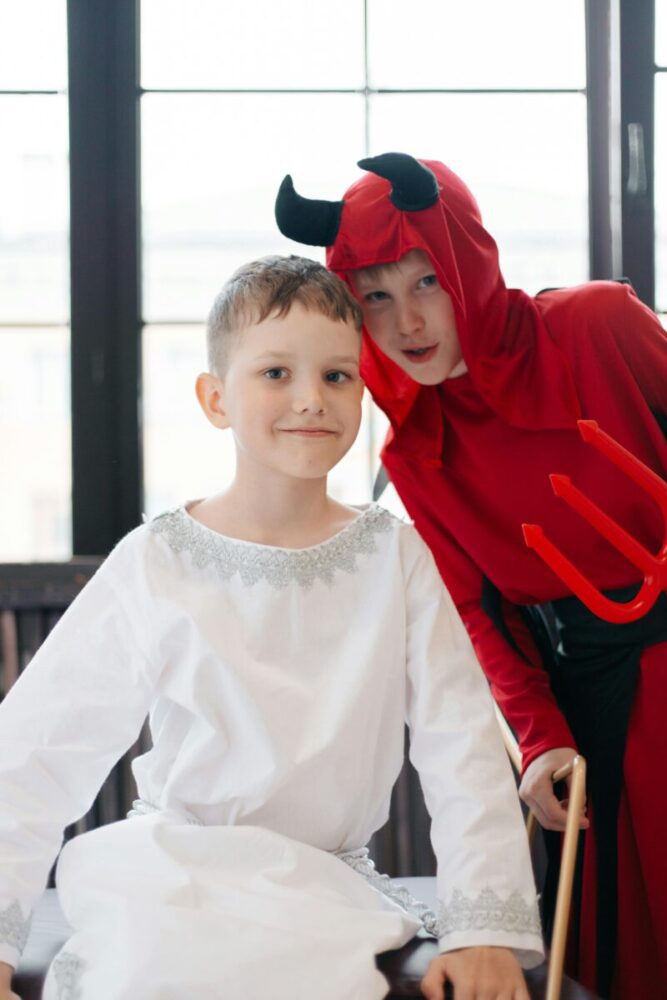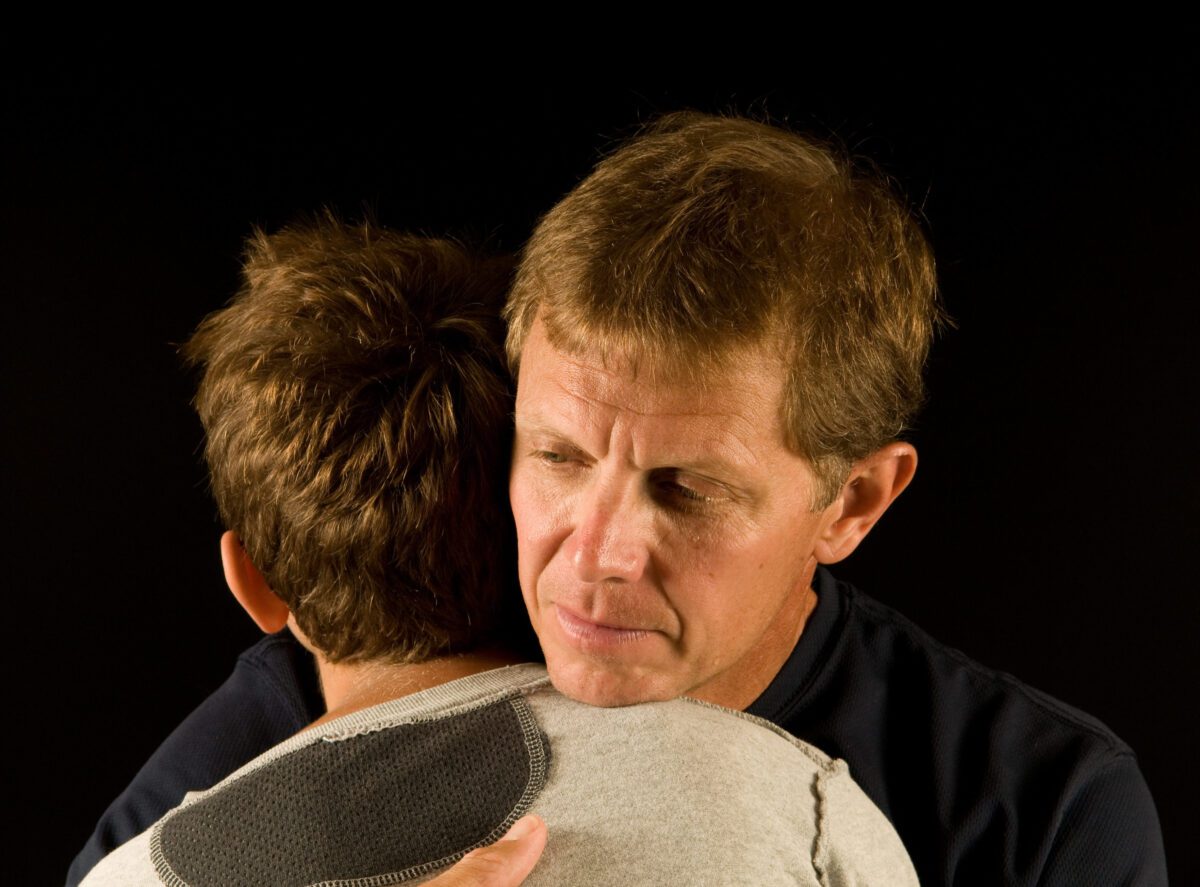How Different is raising my Gay Child from raising my Straight Child? - Very different and very much the same!
Understanding the Differences and Similarities
Raising a child, gay or straight, ultimately comes down to love, empathy, patience, understanding and guidance. The fundamentals don’t change. But the understanding part, is a little different. Let’s be honest: if your child is gay, there are additional realities they may face that their straight siblings or peers won’t. These realities, will also be different, if you are heterosexual parents. These differences don’t make the child more special or less so. They make them unique. And being unique means they may need a little more awareness, a little more care, and a little more space to feel safe and seen, and without doubt, a little more patience and understanding.
Navigating a Fast-Paced World
The world is changing fast. What was taboo a decade ago is sometimes celebrated today. Too much so, in my opinion. What was criminalised yesterday can now be legal. But our emotional wiring hasn’t evolved quite as quickly. Our instincts and biases, are rooted in generations of belief systems and societal conditioning, which are still struggling to adapt.
Just 30 years ago, in many countries, being gay was illegal. Even today, more than 60 countries still criminalise same-sex relationships (ILGA World, 2023). In Europe, where legal acceptance is widespread, social acceptance still varies dramatically: 95% of people in the Netherlands support equal rights for LGBTQ+ individuals, while in Bulgaria, it’s only 21% (Eurobarometer, 2023).
The Reality of Homophobia
Let’s be clear, homophobia has not disappeared. It’s just become more subtle in some places. What looks like tolerance on the surface still masks fear in many, misunderstanding and discrimination is a rife today as it was when I was a child in the 60s, the only difference today is, it has become socially unacceptable to discriminate, and so discrimination is masked behind the veneer of social acceptance. Your gay teen feels this, whether it is spoken aloud or not.
But think about the word I used “tolerance”, as a straight or heterosexual person, you are not tolerated, you are fully accepted and integrated into society. Why? Because you are deemed socially acceptable, while a gay person is only tolerated at best.
Research from GLSEN (2023) shows that over 60% of LGBTQ+ students hear homophobic remarks at school. Many report feeling unsafe simply because of who they are. This tells us one thing: the road to equality is still under construction, and our kids are walking it barefoot.
The Universal Challenge of Adolescence
All teens face pressures: grades, exams, friends, hormones, self-image, self-esteem, self-identity, social media, and the overwhelming desire to fit in. But gay teens carry a heavier load. They often wrestle with internal fears of rejection, abandonment, and loneliness. They may silently ask:
- Will my parents still love me?
- Will I lose my friends?
- Will I be safe?
- Do I have to hide?
These are not minor worries. They go to the core of self-worth.
The Need for Strong Parental Support
Here’s the cruel irony of parenthood: You spend a decade being your child’s safest haven, their confidant, their cheerleader, their soft place to fall. Then, just as the storm of adolescence hits (those brutal years between 11 and 16, which I’ve come to call “the destructive years”, they suddenly shove you away. Hard.
This isn’t betrayal, it’s biology. Developmentally, teens are wired to seek independence, to test boundaries, to question everything you’ve ever taught them. But here’s the catch: The more they push, the more they need you to hold on. And if your child is gay, that need becomes even more critical.
When a gay teenager tentatively mentions a same-sex crush and you change the subject, they don’t hear "I’m uncomfortable." They hear "You’re unacceptable." When you assume they’ll "grow out of it," they don’t feel optimism, they feel erased.
Research confirms this: A 2022 study in Child Development found that LGBTQ+ teens who perceive parental rejection, even unintentional, are 3x more likely to develop severe depression (Ryan et al., 2022)¹.
Most parents forget how it felt to be 14. The raw insecurity, the desperate need to belong, the terror of being "found out" for whatever made you different. We look back and see a haze of school photos and forgotten hobbies, but for our kids, every moment is high-definition vulnerability.
This amnesia is dangerous. It lets us dismiss their pain with "You’ll get over it" or "It’s just a phase." But for a gay teen, phases don’t feel temporary, they feel like life sentences.
By 17 or 18, if the bridge hasn’t burned, something miraculous happens: They start coming back. The eye-rolling stops. The bedroom door stays open. Suddenly, they want your advice, or at least tolerate it.
But here’s the truth: You can’t wait that long to show up.
What Your Child Needs (Even When They Say They Don’t)
- Say the quiet part out loud. - "Nothing you tell me will make me love you less". - "If you like someone, I want to hear about it, no matter who they are."
- Lean in when they push away. - A 2023 Journal of Adolescence study showed that teens who eat dinner with parents three times per week have lower rates of self-harm (Smith et al., 2023).
- Remember what you forgot. - That time you lied about being sick to avoid gym class? They’re doing that too, but with higher stakes.
The "destructive years" are a test, not of your child’s love, but of your patience. Stay close. Speak love. Outlast the storm.
During adolescence, identity takes shape. Teens begin to ask: Who am I? Where do I belong?
For gay teens, this process is layered with additional fear and uncertainty. They often feel like outsiders in conversations about love, dating, or future family life. Since most people are straight, roughly 80–90% of the population, heterosexuality tends to be the assumed “norm.” So when your teen doesn’t fit that mold, they might feel isolated or invisible.
And here’s a truth we don’t talk about enough: pretending to be someone you’re not, just to be accepted, erodes the soul.
How to Be the Anchor Your Child Needs
- Create a Safe Space
Let them know they can talk to you without fear of judgment. Privacy and trust are key. Don’t pressure them to come out. Let them do it in their own time.
- Educate Yourself
Learn about LGBTQ+ experiences. Read real stories. Watch documentaries. Challenge your own assumptions.
- Be an Advocate
Speak up against discrimination, even in your own family or circle. Support inclusive policies at school or in your community.
- Provide Emotional Support
Validate their feelings. Remind them that they are enough, exactly as they are.
- Be Observant, Not Invasive
Pay attention to behavioral changes, aggression, self-harm, introversion or signs of distress, but avoid snooping. Trust is fragile.
- Encourage Healthy Relationships
Teach them about boundaries, respect, and mutual care. Model those values in your own relationships.
- Seek Professional Help if Needed
If your teen, or you, are struggling, consider LGBTQ+-affirming therapy. Online and local support groups can also be helpful. If seeking a therapist, find someone who has experienced brokenness, someone who is also gay.
- Educate Others
Help your family and friends understand. Challenge outdated myths. Normalise conversations about being gay.
- Encourage Self-Expression
Let them be themselves, whether it’s through music, sports, art, or clothing.
- Practice Patience and Love
This is a journey, not a moment. Some days will be hard. Be their anchor.
When Parents Struggle
Some parents react with fear, anger, or rejection. Often, these reactions are rooted in deeply held beliefs, religious, cultural, or personal. Or they reflect worries about how others will treat their child.
But know this: most parents, even those who initially struggle, come around. When love is present, understanding usually follows. Sometimes it takes time. Sometimes, it takes help.
If you’re struggling, reach out. Talk to a therapist, join a support group, or speak with another parent of an LGBTQ+ teen. Don’t let pride or confusion get in the way of connection.
Parents may begin to ask themselves these questions, its normal to question self.
- Guilt - "Did I cause this?". No. Sexual orientation is not a choice. It emerges from biology, psychology, and social factors we don’t yet fully understand." American Psychological Association (2021)
- Grief for the "traditional" future you imagined. That’s okay, process it away from your child.
- Fear of bullying. - Arm them with comebacks: "Yeah, I’m gay. Got a problem with that? "The Lifeline: Family acceptance predicts resilience. A Pediatrics (2023) study proved: LGBTQ+ teens with supportive parents grow into adults with higher self-esteem and lower substance abuse rates.
Your gay child isn’t "broken." They’re a prism, reflecting the same light as their straight siblings, just through a different lens.
Many gay teens live in quiet fear. Afraid to disappoint. Afraid to be different. They worry that being honest will change how you look at them.
They wonder:
- Will I be thrown out?
- Will Mum cry?
- Will Dad be angry?
- Will I lose my siblings or my best friend?
And in that fear, shame festers. Shame kept secret doesn’t shrink—it grows. And it isolates.
A study by The Trevor Project (2023) found that 41% of LGBTQ+ youth seriously considered suicide in the past year. That number drops significantly for those who had accepting families. Let that sink in. Your acceptance is not just affirming, it can be life-saving.
What Does It Mean to Be a Parent of a Gay Child?
Parenting is complex at the best of times. And when your child shares that they’re gay, it might stir up emotions you didn’t expect, shock, sadness, confusion, even guilt. Some parents feel disappointed, especially if they envisioned a traditional future for their child, weddings, grandkids, family traditions. That’s okay. It’s human.
Some ask: Is it a phase? Is it my fault? NO! It's not a phase.
As I have already mentioned, being gay is not caused by parenting style, trauma, experiences, or environment. Sexual orientation is not a choice. It’s not a disease. And it’s not a problem to fix.
What Great Parenting Looks Like
Great parenting is love in action. Patient. Honest. Unconditional.
The best parents of gay teens foster trust before their children ever come out. They keep discussions about identity open, safe, and shame-free. They allow space for their child to arrive at their truth in their own time.
Not all parents get raising a gay child right immediately, and that’s okay too. What matters is that you keep growing with your child.
If you are a parent, raising a gay child, reading this, confused, emotional, scared, or simply unsure, know that you are not alone. Parenting is not about perfection. It’s about presence. Your child doesn’t need a perfect parent. They need a present one.
Your love can be the most healing force in their life.
If you need support, guidance, or just someone to talk to, feel free to email me. I’m here to help - and it’s free.
References
- Eurobarometer (2023). Discrimination in the EU. European Commission. https://europa.eu/eurobarometer
- ILGA World. State-Sponsored Homophobia Report (2023). https://ilga.org
- GLSEN. National School Climate Survey (2023). https://www.glsen.org/research
- The Trevor Project. (2023) National Survey on LGBTQ Youth Mental Health. https://www.thetrevorproject.org.
- Ryan, C., et al. (2022). Parental rejection and LGBTQ+ youth mental health. Child Development, 93(2), e123-e138.
- Smith, A.R., et al. (2023). Family routines and adolescent self-injury. Journal of Adolescence, 95(1), 45-57.
This article was published in September 2024 and revised in June 2025
By David Ellis


















